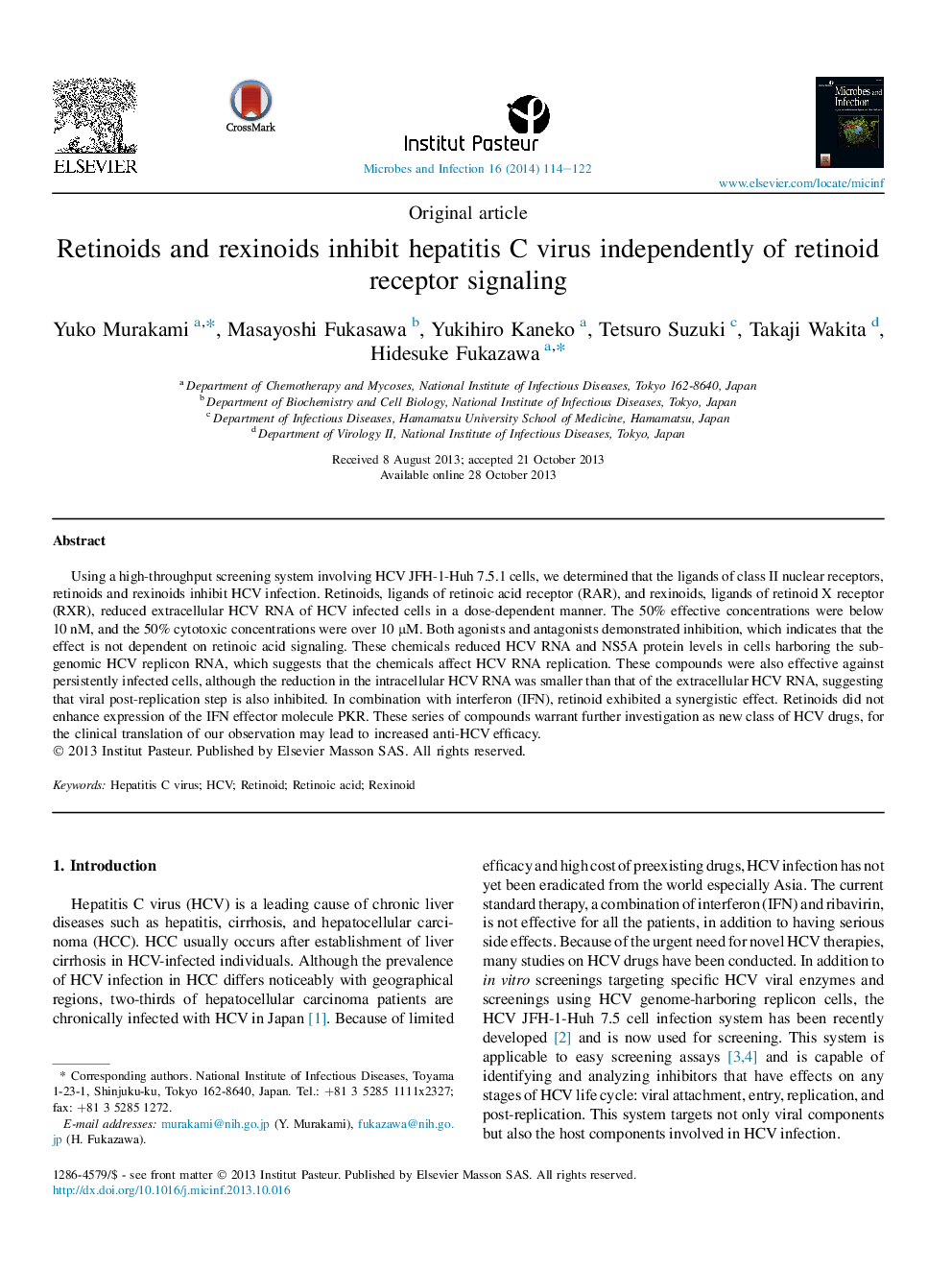| Article ID | Journal | Published Year | Pages | File Type |
|---|---|---|---|---|
| 3414813 | Microbes and Infection | 2014 | 9 Pages |
Using a high-throughput screening system involving HCV JFH-1-Huh 7.5.1 cells, we determined that the ligands of class II nuclear receptors, retinoids and rexinoids inhibit HCV infection. Retinoids, ligands of retinoic acid receptor (RAR), and rexinoids, ligands of retinoid X receptor (RXR), reduced extracellular HCV RNA of HCV infected cells in a dose-dependent manner. The 50% effective concentrations were below 10 nM, and the 50% cytotoxic concentrations were over 10 μM. Both agonists and antagonists demonstrated inhibition, which indicates that the effect is not dependent on retinoic acid signaling. These chemicals reduced HCV RNA and NS5A protein levels in cells harboring the subgenomic HCV replicon RNA, which suggests that the chemicals affect HCV RNA replication. These compounds were also effective against persistently infected cells, although the reduction in the intracellular HCV RNA was smaller than that of the extracellular HCV RNA, suggesting that viral post-replication step is also inhibited. In combination with interferon (IFN), retinoid exhibited a synergistic effect. Retinoids did not enhance expression of the IFN effector molecule PKR. These series of compounds warrant further investigation as new class of HCV drugs, for the clinical translation of our observation may lead to increased anti-HCV efficacy.
